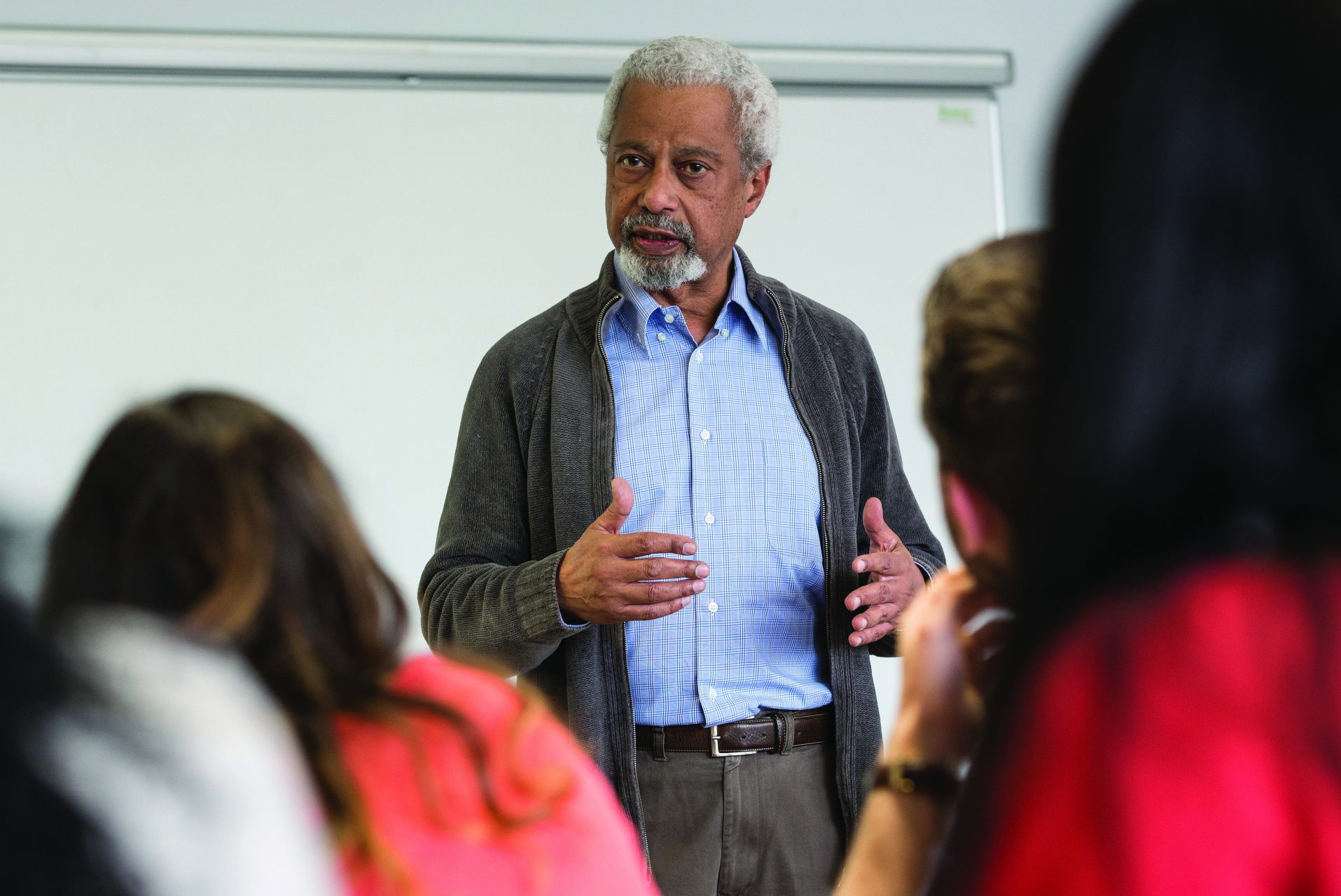The University is delighted to report that Emeritus Professor Abdulrazak Gurnah has won the Nobel Prize For Literature 2021.
The Nobel Committee awarded this year’s Prize to Professor Gurnah for ‘his uncompromising and compassionate penetration of the effects of colonialism and the fate of the refugee in the gulf between cultures and continents.’
The University’s Vice-Chancellor and President Professor Karen Cox was among the first to offer congratulations. She said: ‘On behalf of the entire University I’d like to extend our huge congratulations to Abdulrazak for this tremendous achievement. Abdulrazak is a complete inspiration to all of us – as a teacher, an alumnus of Kent and as such a powerful voice in postcolonial literature. His stories, some of which were first drafted in our very own Templeman Library, have touched millions worldwide and shine a light on human experiences that are so often ignored. We couldn’t be prouder of his success.’
Dr Bashir Abu-Manneh, Head of the University’s School of English, added: ‘Abdulrazak Gurnah’s writing epitomises our contemporary condition of displacement, violence, and belonging. His is the struggle for individual voice, for justice, for feeling at home in an ever-changing world. No one writing today has articulated the pains of exile and the rewards of belonging so well. Canterbury and Kent are both his exile and home.’
Professor Abdulrazak Gurnah was born in 1948 in Zanzibar, Tanzania. He is the author of the highly acclaimed novels Memory of Departure, Pilgrims Way, Dottie, Paradise, which was shortlisted for the 1994 Booker Prize, Admiring Silence, By The Sea, Desertion, The Last Gift, and Gravel Heart. His latest book, Afterlives is published by Bloomsbury. Until his recent retirement, he was professor of English and postcolonial literatures at Kent’s School of English. Professor Gurnah was a member of the Man Booker Prize judging panel in 2016.
Watch his Think Kent talk on Indian Ocean Journeys here and his reading of The Arriver’s Tale for Refugee Tales here. You can read more about Professor Gurnah’s life and work here.
